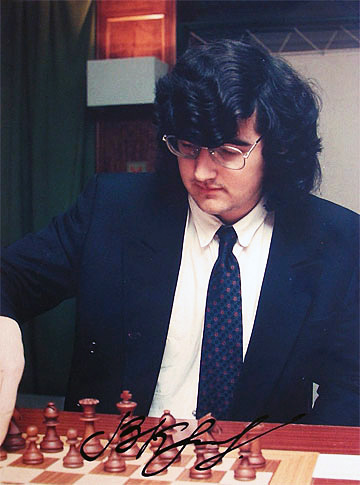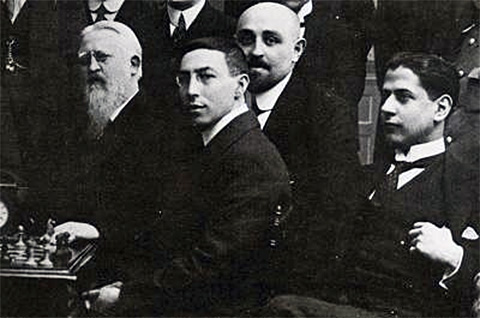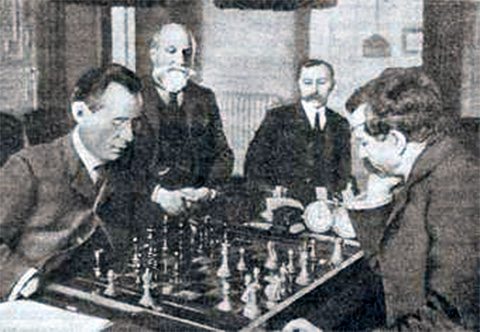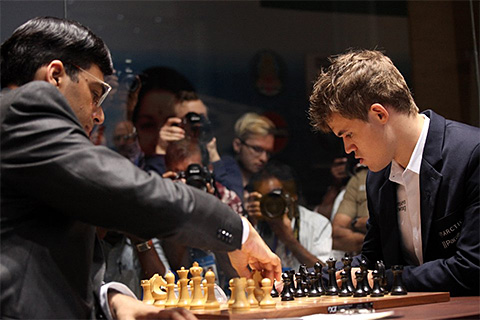| gesl | Дата: Воскресенье, 24.11.2013, 11:54 | Сообщение # 1 |
|
Генерал-лейтенант
Группа: Модераторы
Сообщений: 320
Статус: Оффлайн
|   Language : deenes Language : deenes
Search :
OK
News Shop Download Support Distributors
The youngest and the greatest 11/24/2013 – With the advent of Magnus Carlsen as the new world
champion, the 16th in the line of classical chess, we decided to compile
a few lists regarding the records and results, the stats and the facts.
You may know who the youngest number one ever is, but can you name the
second? The third? How about the youngest world champions, or the most
crushing victories? We answer all these questions and more.
The youngest and the greatestWith the advent of Magnus Carlsen as the new world champion, the 16th in the line of classical chess, we decided to compile a few lists
regarding the records and results, the stats and the facts. Youngest number one Less than two months after this picture, Magnus Carlsen Less than two months after this picture, Magnus Carlsen
would be the youngest world number one in historyThere is no question the World Champion is the youngest number one player in the world, but can you name the second youngest? Hint: it may
surprise you. What about the third, and the fourth? For players
preceding the FIDE ELo system, we have resorted to the calculations and
results published by Chessmetrics. Even if the ratings do not agree with
FIDE's, they still calculate quite well who the best performing players
are at a given moment. Rank Name Age When 1 Magnus Carlsen 19 years 1 month 2 days January 1, 2010 2 Vladimir Kramnik 20 years 6 months 7 days January 1, 1996 3 Garry Kasparov 20 years 8 months 19 days January 1, 1984 4 Robert Fischer 20 years 10 months 23 days February 1964 5 Mikhail Tal 21 years 10 months 22 days October 1958 When the January 1996 ratings list came out, both Vladimir Kramnik and Garry Kasparov held the exact same 2775 rating. Although Kramnik
was shared first, and not sole first, there is no reason why it should
not count. According to Chessmetrics, Bobby Fischer was the top
performing player in February 1964, and if one counts it as a ratings
list published on the first of the month, he would have been 20 years
10 months and 23 days old.  Young Vladimir Kramnik was a force to reckon with and was Young Vladimir Kramnik was a force to reckon with and was
already in the top five in 1993What about prodigies such as Capablanca? Interestingly, Chessmetrics only considers he could lay claim to the title of number one in May
1914, when he was 25 years 5 months 12 days old. Between Lasker,
Rubinstein, and Maroczy, he had his work cut out for him. José Raul Capablanca (right) had to reckon with players such as Artur Rubinstein (center). José Raul Capablanca (right) had to reckon with players such as Artur Rubinstein (center).
By 1914 though, he was ready to claim the mantle.Youngest world championAlmost any chess player can name the youngest world champion ever, Garry Kasparov, or the second youngest, Magnus Carlsen, but what about
the third, fourth or fifth? Rank Name Age When 1 Garry Kasparov 22 years 6 months 27 days November 9, 1985 2 Magnus Carlsen 22 years 11 months 24 days November 23, 2013 3 Mikhail Tal 23 years 5 months 28 days May 7, 1960 4 Anatoly Karpov 23 years 10 months 11 days April 3, 1975 5 Vladimir Kramnik 25 years 4 months 10 days November 4, 2000 6 Emanuel Lasker 25 years 5 months 2 days May 26, 1894 When Bobby Fischer resigned his title, FIDE still attempted to negotiate with the champion, but for better or for worse, he refused to
reconsider and as a result, Anatoly Karpov was declared the champion
by default on April 3, 1975.The most decisive title matches Since world championship matches have varied greatly in their lengths, the only proper parameter is the winning percentage. The honor
of the most crushing victory ever goes to Emanuel Lasker, who wiped out
David Janovsky in the world championship match in 1910 by 9.5-1.5 for an
86.3% result, however he also played at a time when the champion could
handpick his opponent. Rubinstein or Capablanca would unquestionably
have given him a far tougher match.  David Janovsky (left) was clearly not Emanuel Lasker's (right) greatest threatAs a result, the list only includes matches played from 1950 and later, and does not include the FIDE Knockout matches. The winner is in David Janovsky (left) was clearly not Emanuel Lasker's (right) greatest threatAs a result, the list only includes matches played from 1950 and later, and does not include the FIDE Knockout matches. The winner is in
italics. Magnus Carlsen's 65% winning percentage is the greatest since FIDE took Magnus Carlsen's 65% winning percentage is the greatest since FIDE took
over the selection process Rank Players Year Win % 1 Anand-Carlsen 2013 65% 2 Kasparov-Short 1993 62.5% 3 Botvinnik-Tal 1961 61.9% 4 Karpov-Korchnoi 1981 61.1% 5 Fischer-Spassky 1972 59.5% 6 Anand-Kramnik 2008 59.1% A case can be made that without the default loss, Fischer’s winning percentage would be greater. If the match was considered to have lasted
20 games instead of 21, his win rate would have been 62.5%, tying him
with Kasparov-Short.Graeme Cree, (Austin, TX) informed us:As an interesting factoid, Carlsen-Anand marks only the third time that the black pieces have come out victorious in a World
Championship match. The only other two were Alekhine-Bogoljubov II in
1934, and Botvinnik-Bronstein in 1951. At 55.0%, Carlsen-Anand marks the
second best performance by Black ever, after 1934.Another curiosity pointed out by GM Jon Hammer: Game Nine of the match was probably the first time Black had won a game without ever
moving the queen from its starting square or exchanging it. Defaults
don't count.
|
| |
|
|